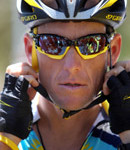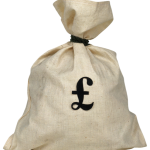 I enjoy watching sport, and I loved my day out at the London Paralympics, but I’m not a real sports fan. Nevertheless, I have been following the Lance Armstrong story with some interest.
I enjoy watching sport, and I loved my day out at the London Paralympics, but I’m not a real sports fan. Nevertheless, I have been following the Lance Armstrong story with some interest.
I’m fairly cynical about reports of doping in the sporting world. I tend to accept the ‘no smoke without fire’ view of things. Yet when Lance Armstrong was first accused of doping, I totally believed his declarations of innocence.
I WANTED Lance Armstrong to be honest, to be telling the truth. Here was a man who had overcome testicular cancer and was going out there and showing everyone what was possible, even if you’d had cancer. It was such a great, heart-warming story
I was also impressed by his apparent congruence. From where I sat, he was totally believable and trustworthy.
And now the truth is out. Lance has admitted, on Oprah, that he was guilty of taking banned substances.
So why does it matter if Lance Armstrong lied?
Firstly, Armstrong sued people for libel when they accused him of doping, and won. Apparently he now apologies for that. Secondly, he is now saying that he doesn’t deserve a lifetime ban from world-class professional cycling which, to him, is like a ‘death sentence’. Thirdly, Armstrong wasn’t just a champion, he was captain of his team, a role model.
Studies into leadership show clearly that people care deeply about the authenticity and trustworthiness of their leaders. As a leader, Armstrong let down his team mates with his dishonesty and – judging by the Oprah interview – by bullying them into doing as he did. Dishonest, AND he encouraged others to behave likewise.
But the piece that gives me the biggest pause is that he doesn’t seem to ‘get’ that lying and cheating your way to the top in international sport is not acceptable. (It shouldn’t be acceptable in business either, but there are business leaders and democratically elected politicians who seem to have successfully risen to positions of leadership without anyone objecting too much).
I am a great believe in forgiveness, but the ‘offender’ has to recognise what they have done and genuinely be contrite. Lance Armstrong’s contrition seems hollow at this stage. As an international sporting champion, he is a role model. Whether he likes it or not, he is, or has been, a leader.
It seems to me that Armstrong’s problem was that anything less that 1st place was failure in his eyes, and failure was unacceptable. To avoid failure he knowingly broke the rules of his sport, and then deliberately lied about it. And now that he has opened his heart up on national TV, he expects to be let back in.
Apart from the message that this sends out to other sportsmen and women – that it’s OK to cheat and then to lie – it also says something about our views on failure. Somehow it’s OK to lie, but not OK to fail. How sick is that?
Personally I’d rather have a leader who did their best and failed, than someone who broke the rules, lied, fell from grace, and then discovered honesty as part of a strategy to be reinstated.
Many of the most successful business leaders have had their share of failures: Richard Branson, Jack Welch, Bill Gates, Colonel Saunders, and Walt Disney have all failed along the way. And all learned from their mistakes and persevered. I’m just not sure how much Lance armstrong has learned from his mistakes yet.
And I do wonder whether his cancer was related to taking performance-enhancing testosterone in the first place.
Have you liked our Facebook page yet?



